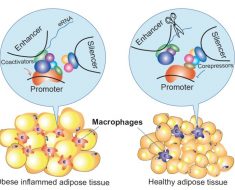Today is National Suicide Prevention Day. The conversation surrounding mental health has grown exponentially in recent years – but as a society, we still don’t treat mental health issues with the same respect as we do physical illnesses.
The NHS defines ‘good mental health’ as ‘a positive state of mind and body, feeling safe and able to cope, with a sense of connection with people, communities and the wider environment.
Mental health is really no different to physical health – everyone has it, and you need it to be good to live freely and happily without problems.
Mental health problems, exactly like physical health problems, can strike at any time in life.
While there often is a trigger for illnesses like depression and anxiety, such as the loss of a loved one or a huge shift in circumstances, mental health issues can often manifest without a trigger and without you necessarily noticing.


How do I know my mental health is changing?
The most common mental health issues we talk about are depression and anxiety – and while equally serious and debilitating, there are a variety of different mental health disorders that require specific treatments.
Most commonly, mental health issues can manifest in a variety of symptoms. These can range from:
- Sudden changes in thoughts and behaviour
- Sadness and melancholy
- Excessive worrying and paranoia
- Inability to enjoy activities and hobbies you once enjoyed
- Social withdrawal – consciously or not
- Changes in sleeping and eating habits
- Persistent anger and irritability
- Delusions or out of character thoughts
- Seeing or hearing things that aren’t there
- Suicidal thoughts
Ask someone you trust to give their assessment of your behaviour – whether the way you act and interpret other people has changed in the time you have known them.

How can I get help for my mental health?
Seeking help is the first step towards getting better and managing a mental illness.
Getting help for a mental health condition can be extremely daunting, but there are services out there to help you.
According to mental health charity Mind, you should seek help if you are:
• worrying more than usual
• finding it hard to enjoy your life
• having thoughts and feelings that are difficult to cope with, which have an impact on your day-to-day life
• interested to find more support or treatment.
DON’T MISS
PIP: Can you get PIP for anxiety? [INSIGHT]
Mental Health patients in hospital going through ‘living hell’ [REPORT]
NHS fears ‘tsunami’ of patients as mental health cases soar [ANALYSIS]
The two main routes for getting mental health support are via the NHS and through private therapies.
You should speak to your GP about your symptoms, and they can put you forward for NHS treatment, and help refer you to private practices if that is what you prefer.
There are also many national and local charities which offer various support services, such as:
• helplines and listening services
• information and signposting
• other services such as peer support, talking therapies, advocacy, crisis care, employment and housing support.

Samaritans are a free and impartial charity which provides emotional support to anyone suffering from distress.
You can call them on 116 123, or email [email protected].
If you are having a serious mental health crisis and need immediate support, you should call 999.
Source: Read Full Article





